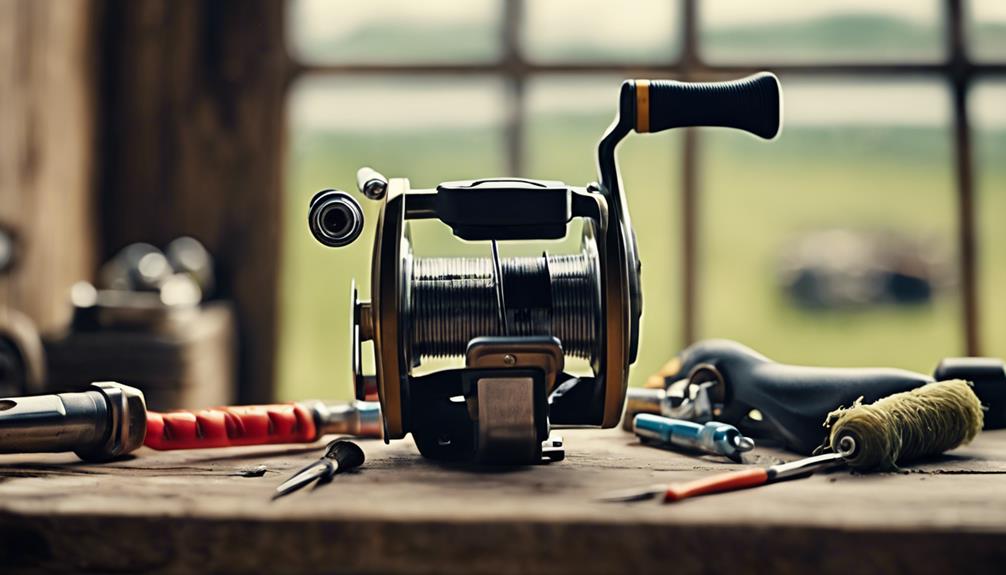Fishing is not just a hobby; it’s a passion for many. However, one of the most common questions among fishing enthusiasts, both seasoned and beginners, is, “When can you start fishing?” This article will cover everything you need to know about the best times to fish, how to prepare for fishing season, and tips to make your fishing experience enjoyable and successful. Get ready to cast your line!
Understanding Fishing Seasons
When considering when you can start fishing, it’s essential to understand the different fishing seasons. Fishing seasons vary by region and are often defined by local regulations. Some areas have specific open seasons for certain species to protect fish populations during their breeding periods. Typically, freshwater fishing seasons open in late spring or early summer, while saltwater fishing can be more flexible due to the migratory patterns of the fish.
# Local Regulations and Licensing
Before you head out, it’s crucial to familiarize yourself with local fishing regulations. Many places require a fishing license, and specific rules may dictate when you can fish for certain species. For example, some regions have designated closed seasons to allow fish populations to recover. Always check with your local fish and wildlife agency for the most current regulations and licensing requirements. This ensures you are fishing legally and contributes to sustainable fishing practices.
The Best Times of Year for Fishing
When can you start fishing? While there are specific seasons, the best times to fish often depend on the type of fish you’re targeting. Generally, spring and fall are considered prime fishing seasons for many species. During these times, fish are more active and easier to catch as they feed in preparation for spawning. Summer can also be productive, especially early in the morning or late in the evening when temperatures are cooler.
# Seasonal Fish Behavior
Understanding fish behavior can significantly enhance your fishing experience. For example, during spring, fish are typically spawning and can be found in shallow waters. In the summer, they might seek deeper, cooler waters during the heat of the day. As fall approaches, many species begin to feed aggressively to prepare for winter. Knowing these patterns will help you decide when can you start fishing for the best results.
Weather Conditions and Their Impact on Fishing
Another critical factor to consider when determining when you can start fishing is the weather. Fish are sensitive to changes in weather conditions. For instance, overcast days can be excellent for fishing, as fish are more likely to venture out from their hiding spots. Conversely, bright, sunny days may push fish deeper into the water. Additionally, fishing just before or after a storm can be productive, as fish often feed heavily during these times.
# The Moon Phase Effect
The moon phase can also impact fishing success. Many anglers believe that fishing during a new or full moon can yield better results because the gravitational pull affects fish behavior. During these phases, fish tend to be more active and feed more aggressively. Therefore, if you’re wondering when you can start fishing, consider planning your trip around the lunar calendar for optimal results.
Choosing the Right Gear for Your Fishing Adventure
Now that you know when to start fishing, it’s time to discuss the essential gear you’ll need. Depending on the type of fishing you plan to do—freshwater or saltwater—your gear will vary. For beginners, a simple rod and reel combo, along with some basic tackle, will suffice. If you’re targeting specific species, you may need specialized equipment.
# Essential Fishing Gear Checklist
Here’s a quick checklist of essential gear to consider when you’re ready to start fishing:
1. Fishing Rod and Reel: Choose a rod that suits your fishing style and target species.
2. Fishing Line: Select a line that can handle the weight of the fish you’re targeting.
3. Hooks and Lures: Stock up on various hooks and lures to attract different species.
4. Tackle Box: Organize your gear in a durable tackle box for easy access.
5. Fishing License: Don’t forget to acquire your fishing license before heading out.
Preparing for Your Fishing Trip
Preparation is key to a successful fishing trip. Once you’ve determined when you can start fishing and gathered your gear, it’s time to plan your outing. Consider factors such as your location, the type of fish in that area, and the best times to fish based on seasonal patterns.
# Choosing a Fishing Spot
Research local fishing spots and consider visiting popular forums or local fishing stores for recommendations. Some great places to fish may include lakes, rivers, or coastal areas, depending on whether you prefer freshwater or saltwater fishing. Don’t hesitate to ask fellow anglers for tips on where to find the best fishing spots in your area.
Best Practices for Successful Fishing
As you prepare to start fishing, it’s essential to adopt best practices that promote sustainability and respect for nature. Always follow local regulations, practice catch and release when necessary, and ensure you’re not overfishing. By being a responsible angler, you contribute to the preservation of fish populations and their habitats.
# Fishing Etiquette
In addition to following regulations, practicing good fishing etiquette is crucial. This means being respectful of other anglers, keeping noise levels down, and cleaning up after yourself. Remember that fishing is a shared experience, and maintaining a courteous attitude will enhance everyone’s enjoyment of the sport.
Conclusion: Cast Your Line and Enjoy!
So, when can you start fishing? The answer largely depends on local regulations, seasonal patterns, and your personal preferences. By understanding fishing seasons, local regulations, and the best times to fish, you can maximize your chances of success. Remember to prepare adequately, choose the right gear, and practice good fishing etiquette. Whether you’re a seasoned pro or a novice angler, fishing offers a fantastic opportunity to connect with nature and enjoy some time outdoors. So pack your gear, plan your trip, and get ready to cast your line! Happy fishing!
